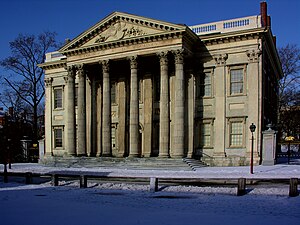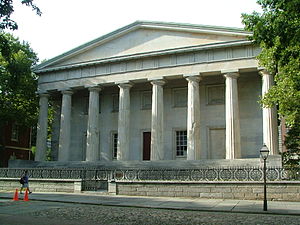Peace, When It Loses The War.' and details of the massive amounts of cash moved out of Germany during the war to safeguard the future of German domination against the economic collapse of losing the Second World War against EUropean Union. AND connections with organisations like The Bilderberger's, Council for Foreign relations, Tri Lateral Commission and other arms of the New World Order.
acefinance posted: "Peace, When It Loses The War.' and details of the massive amounts of cash moved out of Germany during the war to safeguard the future of German domination against the economic collapse of losing the Second World War against EUropean Union. AND connections"
New post on Ace Finance News


acefinance: Peace, When It Loses The War.' and details of the massive amounts of cash moved out of Germany during the war to safeguard the future of German domination against the economic collapse of losing the Second World War against EUropean Union. AND connections with organisations like The Bilderberger's, Council for Foreign relations, Tri Lateral Commission and other arms of the New World Order.
Around the end of 1939, most of Europe was either consciously or unconsciously under the influence of the economic concept of England. Over recent years, however, it has been swept out of European countries, politically, militarily and economically. Politically the three-power pact has given honour once again to the ancient figures of life, people and room. It has also established a natural order and a neighbourly way of co-existing as the ideal of the new order. The foundation of English economics, which is the basis of the balance of powers, has been militarily destroyed. And economically, a change has come about after the political and military development, the shape of which is easy to describe, but whose final significance is very difficult to evaluate. I can only repeat, that the changing order that is happening now has to be ranked as one of the greatest economic revolutions in history. It signifies a reversion of the economy of Europe to a time before the English concept of building an overseas Europe, i.e. an awareness of one's own country.The Discussion so far and its ResultsDiscussions about questions relating to Europe started as the power of the NSADP grew. At the Congress of Europe in Rome from 14th to 20th November 1932, Alfred Rosenberg developed, for the first time in front of an international forum, thoughts and ideas that have moved us since. No one, who fights for a new economic order in Europe, can ignore these perceptions and conclusions. The economic and political wheel was set in motion, when the NSDAP declared the militarization of the German economy. It is to the credit of the journal 'Germany's Economy' that it first seized these questions in 1932, kept on bringing them up and stuck doggedly to those original perceptions. The idea of German economic self- sufficiency in the new political sense and the German economic militarization are synonymous with this journal. Besides this, Daitz, the ambassador, has earned the special credit of being the first to have related German economic history to the present time. Part II of his selected speeches and essays, which appeared in 1938 under the title 'Germany and the European Economy', summarizes his concepts formed between 1932 and 1938. The Italian, Carlo Scarfoglio, delivered with his book 'England and the Continental Mainland', a decisive historical contribution to the consciousness of the European continent. Meanwhile German and Italian economic policy drew the political consequences from the historical lessons that were learnt during the blockade and learnt again during the sanctions. The speech made in Munich in 1939 by the leader of the Reich's farmers, R. Walther Darre, at the 6th Great Lecture at the Commission of Economic Policy of the NSDAP, takes a special place in the discussion at that time. Its theme was "The market order of the National-Socialist agricultural policy - setting the pace for a new foreign trade order."While our leader maintained the hope of reaching a peaceful agreement with England, the route for European economic unity remained problematic. The end of 1939 was a decisive point and it was natural that the years 1940-1941 heralded the new economic and political order. The writer, in particular, developed and extended in speech and writing the intellectual fund of the new economic policy, which has been translated into most languages, so that today everywhere the great constructive texts are known. These contexts revolve around the following issues:
Economic Practice:
Even practical economic life has increasingly allowed entry to new thoughts. I am able to see the decisive steps in the start and realisation of the following points:
Related articles
- Europe's Soft Bigotry of Low Economic Expectations (sago.com)
- Germany - the EU's 'exceptional nation' - sees no need for change (newstatesman.com)
- Europe's False Recovery (business.time.com)
- What if Germany's Social Democrats win this election? | Andrea Nahles (theguardian.com)
acefinance | August 19, 2013 at 8:00 pm | Tags: #AceNewsServices, Angela Merkel, Economic, Economy of Europe, England, European Union, German, Germany, New World Order | Categories: Ace Banking News, Ace Business News, Ace Debt News, Ace Finance News, Ace News Desk, Ace Social News, Ace Welfare News, Euro Zone News, Uncategorized | URL: http://wp.me/pzTwj-1dN
Comment See all comments Like
http://acefinance.me/2013/08/19/european-economic-community-prelude-to-the-eu/
Thanks for flying with WordPress.com
Related articles
 European Union - An Overview of the European Union - New Comment(acefinancenews.blogspot.com)
European Union - An Overview of the European Union - New Comment(acefinancenews.blogspot.com)
 What 1973 can tell us about today's economic crisis(theguardian.com)
What 1973 can tell us about today's economic crisis(theguardian.com)
 New York Times:As Germans Push Austerity, Greeks Press Nazi-Era Claims(the500euros.wordpress.com)
New York Times:As Germans Push Austerity, Greeks Press Nazi-Era Claims(the500euros.wordpress.com)
 GEORGE SOROS: Europe's Nightmare Is Getting Worse, And Only Germany Can Make It Stop(businessinsider.com)
GEORGE SOROS: Europe's Nightmare Is Getting Worse, And Only Germany Can Make It Stop(businessinsider.com)



























